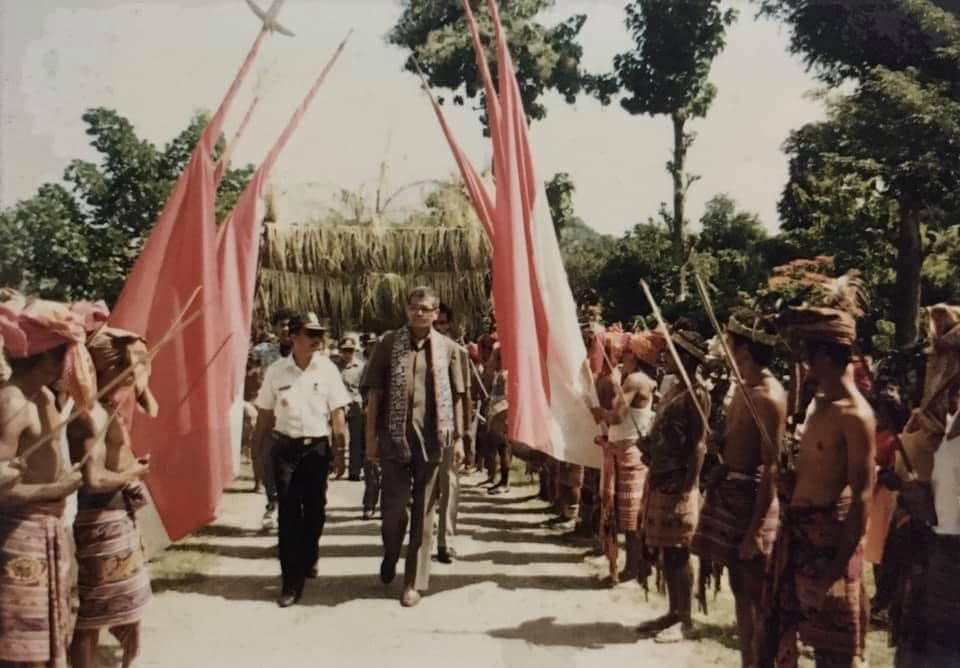HOME | DD
 Mothrado — What indonesian do in east timor is developments
Mothrado — What indonesian do in east timor is developments

#coldwar #easttimor #integration #war #differencebetweencolonialismandintegration
Published: 2022-10-01 23:03:41 +0000 UTC; Views: 610; Favourites: 3; Downloads: 0
Redirect to original
Description
INTEGRATION POLITICS IS DEVELOPMENT POLITICS, IT IS NOT COLONIALISM.Based on the mandate of MPRRI DECREE NUMBER VI (MPRRI : Republic of Indonesia's People's Consultative
Assembly(en.wikipedia.org/wiki/People%2… )of 1978, Indonesian Politics in East Timor
is actually a politics of integration, not colonialism.
Unlike the politics of imperialism+colonialism, in the politics of integration there is no attempt to control
territory on the basis of exploiting resources to take advantage of the mother country, slavery, forced cultivation,
or ethnic discrimination between those who rule and those who are controlled, there is no social treatment that
demeans ethnic Timorese.
with respect to ethnicities outside Timor, there is no difference in legal treatment of the position of citizens
between Indonesian citizens outside East Timor and residents of East Timor.The thing that distinguishes the colonial policy which is commonly practiced by European countries compared to
Indonesia's integration policy is that there is an element of request from the Timorese themselves to ask to
join the Republic of Indonesia, whereas in history, there has never been a nation inviting invaders to come and enter
control.
his country. Despite the fact that there was a war, it is understandable that it happened because there were minority
groups who carried out armed resistance.
With its political integration, Indonesia is forced to carry out two important roles, namely the role of stability
and security and organizing development.On the one hand, to uphold security stability, it has been proven that Indonesia is able to handle armed movements
well so that armed resistance groups are able to be isolated in controlled places far from civilians who support
integration.
On the other hand, Indonesia has succeeded in building solid and good solidity with the integrationist group
which represents the majority of the people of East Timor, who with full support from Indonesia, they are calmly
able to organize local government to carry out development programs and can run local government well.
The politics of Indonesian integration in East Timor is very far from colonial character, because of the emergence of
a strong characteristic of the integration commitment, namely when Indonesian citizens outside East Timor
carry out development programs and enjoy facilities, subsidies and services from the government, East Timorese
also receive treatment. the same as other Indonesian citizens outside East Timor in all fields and aspects of life.The politics of integration has a strong legal basis and facts because it was determined through the
MPR decree((MPRI : People's Consultative Assembly(en.wikipedia.org/wiki/People%2… )
which the government must carry out under President Suharto, and President Suharto managed to maintain and carry
out that mandate until his position as president ended.
The proof of the success of the political integration is the rapid growth of development in all sectors, and
what is very prominent is the production of thousands of East Timorese graduates, who are ready to be used to
fill development in East Timor.
From the facts above, it can be concluded that people who still refer to Indonesia as a colonizer are
people who really have an interest in forcing the emergence of that designation, even though they have to
risk being seen as shallow-minded people, who show their low analytical skills, are also identified as people who
cannot search for information. literacy and relevant data to capture the essence of the problem of Indonesia's
entry and presence in East Timor.If until now they still fail to understand the situation and the difference between the politics of Indonesian
integration and the politics of colonialism, then we can be sure that they will also fail to understand and
fail to develop the foundation and framework of truth in the history of their own nation.























